The Hirota Tsumugi Blog
Textiles
-
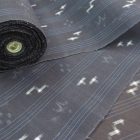
- 2019.07.02
- Ryukyu Kasuri / “clay wall like” unique texture
- The Ryukyu Kasuri for summer kimono employs unique twisted silk for weft yarns in order to make distinctive scabrous and see-through texture. Its texture is sometimes called "cray wall like".
- Read more
-
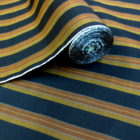
- 2019.06.21
- Kihachijyo — a primo traditional silk textile made in Hachijyo island
- Kihachijyo, one of the prime grade silk textiles, had been beloved and worn only by the Feudal lords in the Edo period, so that it has different origins from other Tsumugi textiles in which other tsumugi were started as formers wears.
- Read more
-
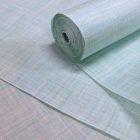
- 2019.06.10
- Beautiful Gradational Omi Chijimi Made in Shiga
- Omi-chijimi is a finest summer ramie kimono weaving, traditionally manufactured in a Japan's biggest lakeside area of Omi region, Shiga prefecture. The history and root are very old in the region, making ramie weaving for over dozen centuries.
- Read more
-
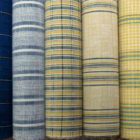
- 2019.05.20
- Tanba cloth — the restored folk craft textile
- Tanba cloth (Tanba-fu) was used to be called "Sajimomen (佐治木綿)", a plain woven folk textile of handspun cotton and silk, produced at Saji-village, Tanba.
- Read more
-
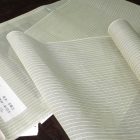
- 2019.04.22
- Noto-jyofu: light green striped Noto-jyofu
- This is one of our Noto-jyofu stocks, a light-green striped Noto-jyofu. Noto-jyofu referes to a traditional hemp textile made in Nakanoto area, the neck of the Noto Peninsula, Ishikawa prefecture.
- Read more
-
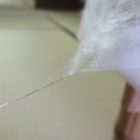
- 2019.04.14
- Yuki Tsumugi’s Silk Handspinning – the World Most Expensive Silk Textile
- Yuki tsumugi is inscribed for UNESCO intangible cultural heritage. Only Yuki tsumugi and Echigo jofu/Ojiya chijimi are inscribed among Japanese textile traditions so far. How astonishing about Yuki tsumugi is its hand-spinning process. All of the weft and wrap yarns 100% consist of floss silk handspun yarn.
- Read more
-
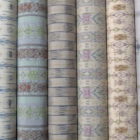
- 2019.03.27
- Hatasho tsumugi from Shiga prefecture/ comb printing kasuri
- By Omi merchants from the Edo period, Omi-jofu has became popular across Japan. After the WWⅡ, its technique has adopted to a silk textile, which is about Hatasho tsumugi.
- Read more
-
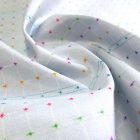
- 2019.03.27
- Simple cross kasuri patterned Oshima tsumugi
- Oshima tsumugi is famous for its mud-dyeing technique and elaborated kasuri patterns. Meanwhile, simple designed, bright colored oshima tsumugi are also produced substantially.
- Read more
-
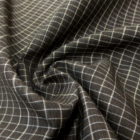
- 2019.03.09
- Mud-dyeing kumejima-tsumugi
- Kumejima tsumugi is one of traditional crafted tsumugi textiles, made in the Kume island, located about 90 kilometers west of Okinawa Honto.
- Read more
-
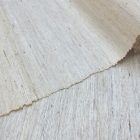
- 2019.03.02
- An ancient Japanese textile, Kudzu cloth
- Kudzu (otherwise known as East Asian arrowroot) is a kind of vine plants native to much of Asia, primarily originated from Japan, China or Korea. "Kudzu" is derived from the Japanese name, and
- Read more